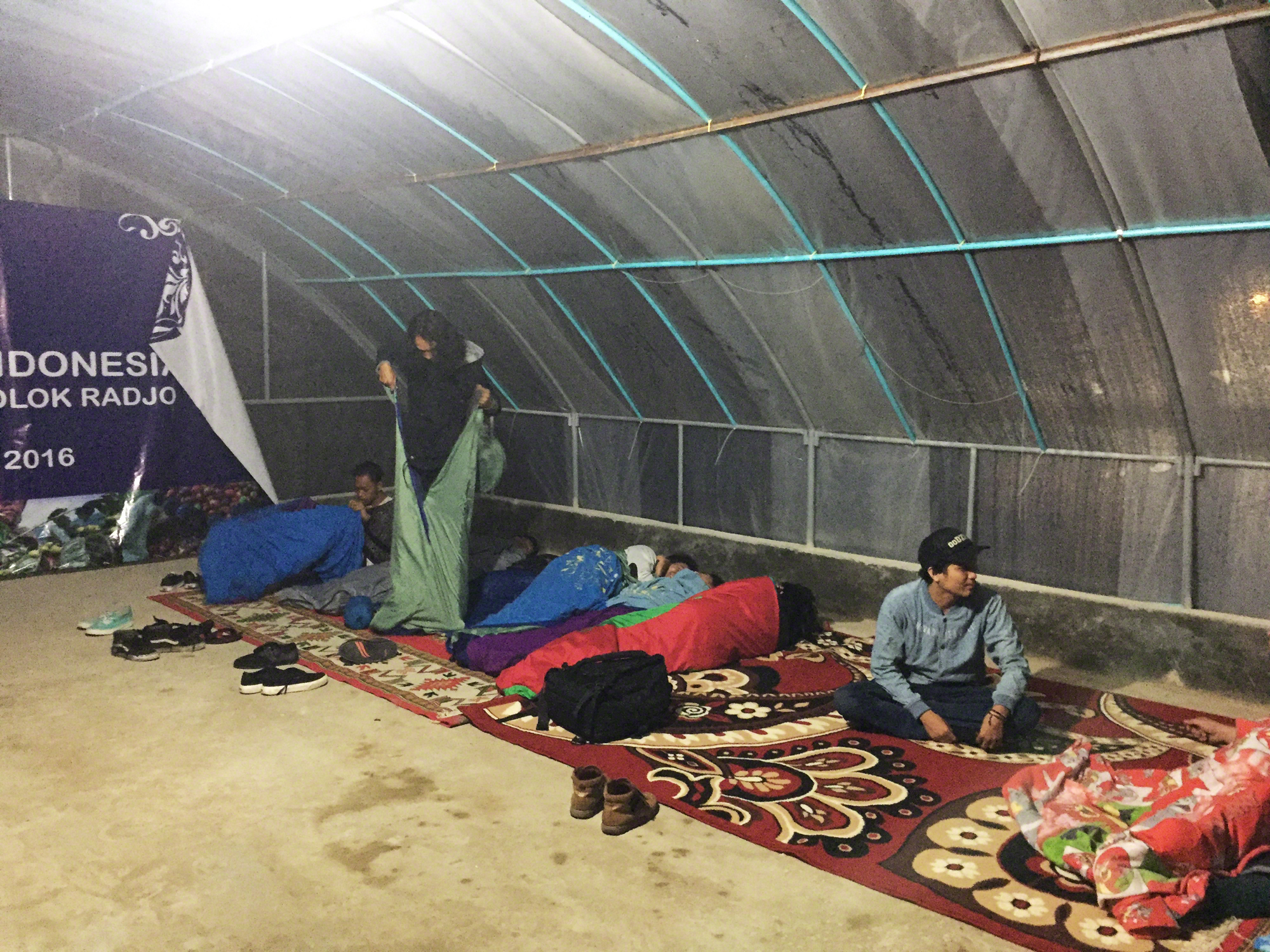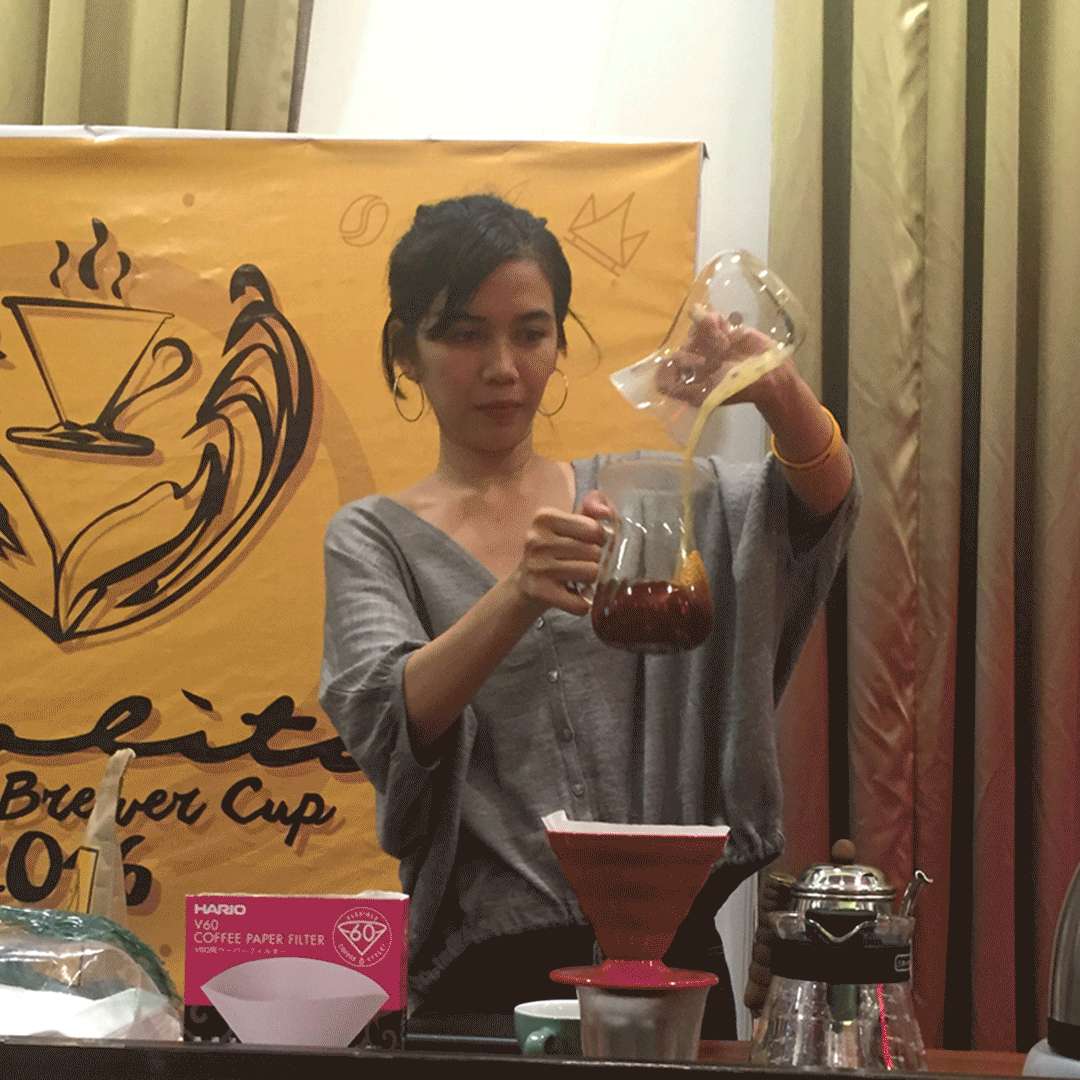This origin-trip came on the heels of the Lalito Coffee’s Brewer Cup competition that I helped judge. I don’t normally care much for competitions for several reasons. This competition, however, stipulated that everyone use the same coffee and the producer of the coffee was one of the judges. There was also a great presentation by Eko Purnomowidi titled “Coffee, People, and The Environment” in which he explored with the audience possible solutions to deforestation and its effect on the environment. The atmosphere of the competition was one of cooperation, inclusiveness, and sharing and something that was incredibly inspiring to see. This group of people represents the leading edge of specialty coffee in Indonesian and I think Indonesia is doing great things to improve its standing as a source of quality coffee.
Immediately after the competition, we formed a caravan of four cars full of baristas, roasters, cafe owners and enthusiasts and we headed into the mountains of Solok. The caravan stayed in touch using walky-talkies, which made overtaking cars much safer on the dark and winding mountain roads. It was around 12 or 1 am by the time we really got underway, which put us at the farms around 3 am. Once we arrived everyone was fed hot noodles (it was cold and rainy out), then sat around and relaxed over a cigarette (or three) before completely crashing. Our sleeping quarters was a freshly built solar dryer. Heavy carpets were placed on the concrete and we all pitched sleeping bags and caught a few hours sleep before an early day of coffee exploring.

The group of farmers we visited in Solok are well organized and already have a well-developed process. Their coffee was used in the competition the previous day and for good reason; it’s a very clean and relatively complex honey-processed coffee that allowed the brewers to explore a range of flavor profiles to showcase. Recently some of Solok Radjo’s coffee made it all the way to El Salvador and was cupped at the Micro Festival El Salvador, which was held at Cuatro M processing mill:
Particularly popular were lots 8 and 10, both from the farm Solok Radjo. Lot 10 was a natural processed coffee; lot 8, “Forrest Bee”, was dried for three days before the pulp was removed, Benji explained.
Our first stop of the day was a for breakfast. We had lontong (pressed rice) with a curry sauce and veggies poured over top. After a quick fuel-up and waiting out a short rain we went to a farm of about five hectares, more than twice the average small-holder size in the region. There was a large pavilion where we could all gather and the coffee brewing gear came out and several people pitched in, helping to make coffee for the group. But as soon as the rain broke, several people took advantage and started exploring the plots of coffee trees.
The plot nearest the pavilion was planted with a breed called sigararutang, a relatively high-yield tree that produces a good-quality coffee. the trees were only 19 months old so they aren’t fully grown yet but are already producing a good volume of flowers and fruit. Intercropped with the young coffee were rows and rows of onions, a cash crop popular in the area. Once the coffee trees grow large enough to need more root space, around 4-5 years, the onions will be removed.
The farmer co-op hosting us (Solok Radjo) also gave a presentation to explain their history, how they are organized and their mission. We learned that they will help any farmer, freely sharing their knowledge of how to process specialty-grade coffee, which has been responsible for improving their product and ultimately their livelihood. I got to see this first- hand later in the visit, when a farmer from a nearby area visited for advice and training (and he had enough samples to share some with me!).
This free-flow of knowledge and experience is the holy grail in my opinion and cooperation is an explicit, intentional part of what coffee is in this region. As one roaster explained it; when roasters from different cafes in Padang get together, they don’t talk about “my coffee” or “his coffee,” they talk about “our coffee; Sumatran coffee” and that is inspiring.
After the presentation, a spontaneous discussion broke out between a few farmers who were there; one of whom is a new coffee farmer who recently planted a couple thousand trees on 12 hectares and is having a hard time managing it all and obtaining the quality he wants. I watched as the other farmers advised him on what he should do to turn things around before he loses all of his trees. They have every market incentive not to help him, yet they spent hours talking with him, answering questions, and giving advice. Again; inspiring.
I keep saying to anyone who will listen that I think Indonesian coffee is slowly making inroads into the specialty scene. No longer is Indonesian coffee limited to the old “earthy and spicy” Sumatra everyone is familiar with. More producers are experimenting with natural and honey processes to push the envelope of what Indonesian coffee traditionally has been. And the movement isn’t isolated to producers—cafes are driving the move towards specialty coffee by brewing delicious coffee using the latest brewing methods and showcasing the coffee producers. They take pride in the fact that the coffee was grown and produced in their region, as they should be. So many times in producing countries, the best coffees are exported to consuming countries like the US, UK, and Japan, instead of being enjoyed by the locals. Having the complete supply chain within the same region reduces the negative impact shipping a coffee has on the environment but also greatly facilitates sustainability through community effort. When a farmer and a roaster have a direct and close relationship it’s much easier to define and obtain higher quality.
The winner of the brewer’s cup won by finishing a V-60 brew “Tarik” style; using several long pours or “pulling” the coffee between two carafes. Tarik is an old method of making coffee and tea here in SE Asia and the fusion of old and new shows the respect they have for their roots. Inspirational indeed!

